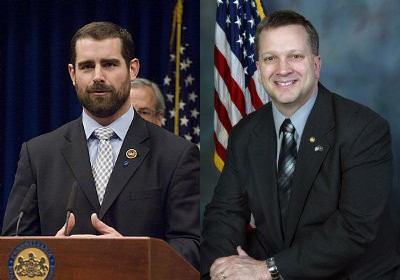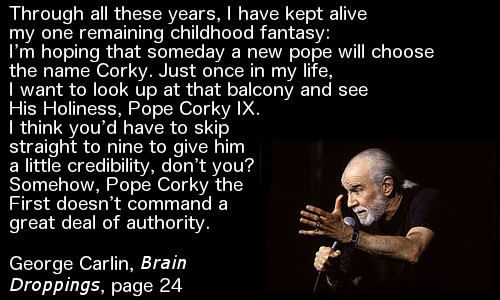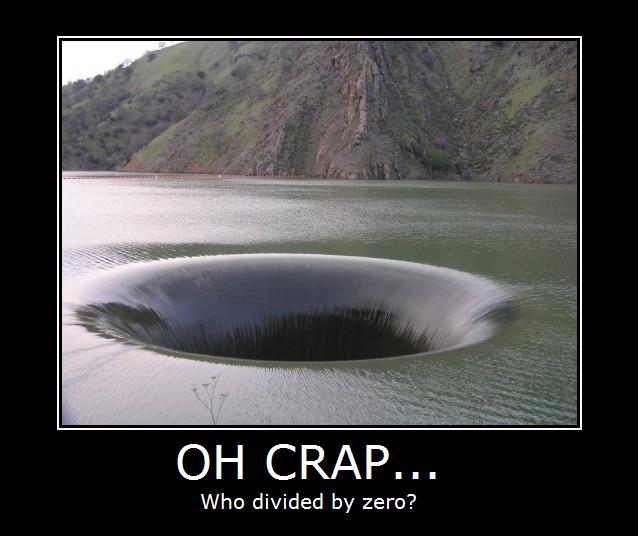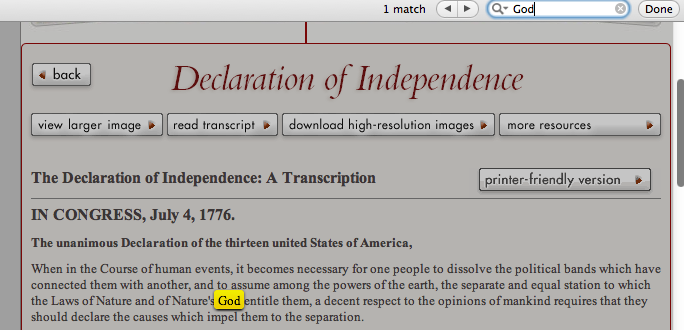!['Earth Structure' [CC BY-ND 2.5], via geologyrocks.co.uk 20121123-105430.jpg](http://crypticphilosopher.com/wp-content/uploads/2012/11/20121123-105430.jpg) Some people believe the earth is only six to nine thousand years old, while others prefer to remain (to use a phrase ironically) agnostic on the subject. Specifically, Georgia Republican Paul Broun expressed his “opinion” that the earth is only 9,000 years old. Florida Republican Marco Rubio, however, stated that the question of the earth’s age “has nothing to do with the gross domestic product or economic growth of the United States,” but that he thinks that “there are multiple theories out there on how the universe was created and I think this is a country where people should have the opportunity to teach them all.”
Some people believe the earth is only six to nine thousand years old, while others prefer to remain (to use a phrase ironically) agnostic on the subject. Specifically, Georgia Republican Paul Broun expressed his “opinion” that the earth is only 9,000 years old. Florida Republican Marco Rubio, however, stated that the question of the earth’s age “has nothing to do with the gross domestic product or economic growth of the United States,” but that he thinks that “there are multiple theories out there on how the universe was created and I think this is a country where people should have the opportunity to teach them all.”
Can we really just live and let live on what may or may not have happened sometime between 6,000 and 4.5 billion years ago? You know, agree to disagree? Also, is this question irrelevant to our present-day economic concerns?
No, to both questions. And here is why.
One reason is scientific, and the other is political. First, the science: If the earth is only 9,000 years old, then all of observed science is wrong in ways that put everyone’s lives at imminent risk, and that also strip me of any certainty that this blog post will ever make it from my iPad to the server, and then to your computer.
Alex Knapp, writing at Forbes, explains why science is important to our modern economy:
…the age of the universe has a lot to do with how our economy is going to grow. That’s because large parts of the economy absolutely depend on scientists being right about either the age of the Universe or the laws of the Universe that allow scientists to determine its age.
For example, fiber optics:
Virtually all modern technology relies on optics in some way, shape or form. And in the science of optics, the fact that the speed of light is constant in a vacuum is taken for granted. But the speed of light must not be constant if the universe is only 9,000 years old. It must be capable of being much, much faster. That means that the fundamental physics underlying the Internet, DVDs, laser surgery, and many many more critical parts of the economy are based on bad science. The consequences of that could be drastic, given our dependence on optics for our economic growth.
In other words, if we don’t know the speed of light, then our entire fiber optics-based communications infrastructure is incorrectly calibrated. Our nuclear industry is in even bigger trouble, though:
Here’s an even more disturbing thought – scientists currently believe that the Earth is about 4.54 billion years old because radioactive substances decay at generally stable rates. Accordingly, by observing how much of a radioactive substance has decayed, scientists are able to determine how old that substance is. However, if the Earth is only 9,000 years old, then radioactive decay rates are unstable and subject to rapid acceleration under completely unknown circumstances. This poses an enormous danger to the country’s nuclear power plants, which could undergo an unanticipated meltdown at any time due to currently unpredictable circumstances. Likewise, accelerated decay could lead to the detonation of our nuclear weapons, and cause injuries and death to people undergoing radioactive treatments in hospitals. Any of these circumstances would obviously have a large economic impact.
If the Earth is really 9,000 years old, as Paul Broun believes and Rubio is willing to remain ignorant about, it becomes imperative to shut down our nuclear plants and dismantle our nuclear stockpiles now until such time as scientists are able to ascertain what circumstances exist that could cause deadly acceleration of radioactive decay and determine how to prevent it from happening.
This is not to say that the earth is 4.5 billion years old because our economy needs it to be so. This is to say that our economy, and all of the technological marvels it has produced, would not exist if the earth were significantly younger (or older), based on the observations scientists have painstakingly compiled over the course of centuries, confirmed experimentally, and harnessed for our benefit. That is, unless you think your cell phone runs on Jesus.
If Paul Broun does not immediately call for the dismantling of our entire nuclear arsenal, then he is either a fool or a liar. That brings me to the political reason this is important.
Any politician who honestly believes in something like a 6,000 to 9,000 year-old earth has disqualified themselves from taking an active role in developing science policy. They can go off and debate angels dancing on the heads of 6,000-year-old pins all they want, but unless they are willing to go to bat for the full impact of what they believe, i.e. the risk of imminent nuclear meltdown worldwide, they need to take a seat.
Any politician who doesn’t believe this, but plays along to get votes, is among the worst sort of craven liar out there, and that should disqualify them, too. I’ll give Ron Chusid (who provided the Knapp quote) the final word on that:
Politicians who are ignorant of basic science are not capable of making rational decisions on public policy in the 21st century. It is possible that Rubio might be more knowledgeable about science but feels it is necessary to deny scientific facts to maintain the support of the anti-science right wing. If this is the case, such cowardice is also not desirable from those in government.
Photo credit: ‘Earth Structure’ [ Bookmark on Delicious
Bookmark on Delicious Digg this post
Digg this post Recommend on Facebook
Recommend on Facebook Share on Linkedin
Share on Linkedin share via Reddit
share via Reddit Share with Stumblers
Share with Stumblers Tumblr it
Tumblr it Tweet about it
Tweet about it Subscribe to the comments on this post
Subscribe to the comments on this post Print for later
Print for later Bookmark in Browser
Bookmark in Browser Tell a friend
Tell a friend



!["The Creation of Adam" [Public domain], via RationalWiki 800px-The_Creation_of_Adam](http://crypticphilosopher.com/wp-content/uploads/2013/05/800px-The_Creation_of_Adam-300x150.jpg) From an
From an 

!['Earth Structure' [CC BY-ND 2.5], via geologyrocks.co.uk 20121123-105430.jpg](http://crypticphilosopher.com/wp-content/uploads/2012/11/20121123-105430.jpg) Some people believe the earth is only six to
Some people believe the earth is only six to !["Bundesarchiv Bild 146-1994-041-07, Dresden, zerstörtes Stadtzentrum" from Bundesarchiv, Bild 146-1994-041-07 / CC-BY-SA [CC-BY-SA-3.0-de (http://creativecommons.org/licenses/by-sa/3.0/de/deed.en)], via Wikimedia Commons Dresden, zerstörtes Stadtzentrum](http://crypticphilosopher.com/wp-content/uploads/2012/09/Bundesarchiv_Bild_146-1994-041-07_Dresden_zerstörtes_Stadtzentrum-300x200.jpg)


!['Texas State Fair honey' by Photo: Andreas Praefcke (Own work (own photograph)) [GFDL (http://www.gnu.org/copyleft/fdl.html) or CC-BY-3.0 (http://creativecommons.org/licenses/by/3.0)], via Wikimedia Commons 320px-Texas_State_Fair_honey](http://crypticphilosopher.com/wp-content/uploads/2012/08/320px-Texas_State_Fair_honey-300x225.jpg) A few weeks ago, a Texas state legislator came up with an alternative to having public school teachers lead their students in prayer, or posting the Ten Commandments over the periodic table, or whatever else it is that people want to do these days. Via the
A few weeks ago, a Texas state legislator came up with an alternative to having public school teachers lead their students in prayer, or posting the Ten Commandments over the periodic table, or whatever else it is that people want to do these days. Via the